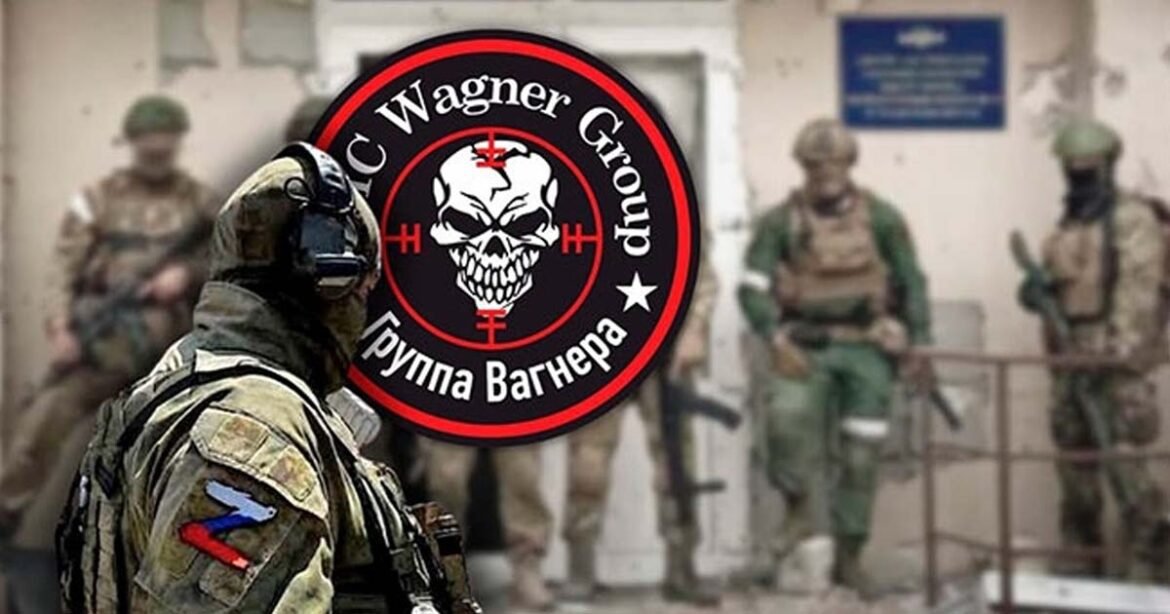The leader of Wagner fighters, the most potent mercenary in Russia has publicly rejected the defence ministry’s attempt to bring his fighting force under its control by announcing that they would not sign a contract with Defence Minister Sergei Shoigu.
In a bold move, Yevgeny Prigozhin, the head of the Russian private military firm Wagner, has openly rejected the Russian Defence Ministry’s attempts to bring his force in line. Prigozhin made it clear that he will not be entering into any contracts with the ministry, sparking questions about the motivations behind Wagner Group’s defiance. This development comes on the heels of the Russian Ministry of Defence’s recent announcement, stating that “volunteer units” and private military organizations, including Wagner, would be required to sign a contract with the ministry.
You can read: Rising nuclear weapons arsenal: A global security concern?
In light of these conflicting stances, it becomes crucial to delve into the reasons driving Wagner Group’s resistance and explore the potential implications for the relationship between the private military firm and the Russian government.
What is Wagner group?
Wagner group is a private mercenary militia founded by an oligarch with ties to the Kremlin named Yevgeny Prigozhin and consists of recruited prisoners and former soldiers. A few thousand mercenaries were employed by the Wagner private military corporation prior to the outbreak of the Ukraine conflict. The majority of them were believed to be former elite soldiers with extensive training. As Russia’s losses in the Ukraine conflict increased, however, the company’s owner, Yevgeny Prigozhin, began to expand the group by recruiting Russian prisoners, civilians, and foreigners.
It has been deployed in several areas, primarily in Africa (Mali, the Central African Republic, Sudan, and Libya) to demonstrate Russian influence without exposing the Russian government to liability. In 2014, the group participated in Russia’s invasion and seizure of Crimea. Wagner has been playing a crucial role in Russia’s conflict against Ukraine. In December, the United States estimated that approximately 50,000 Wagner soldiers had fought in Ukraine.
Wagner refuses to sign contract with Russian ministry
On Saturday, Defence Minister Sergei Shoigu issued a directive requiring all “volunteer detachments” to sign contracts with his ministry – a move designed to boost the efficacy of the Russian army fighting in Ukraine. Even though the ministry did not mention Wagner in its public statement, Russian media reported that it was an attempt by Shoigu to rein in the mercenaries following a succession of public outbursts by their controversial leader.
However, Prigozhin is resisting the command by refusing to have his soldiers sign these contracts. “Wagner will not sign any contracts with Shoigu,” Prigozhin said on Sunday. He stated that the order did not apply to Wagner. In addition, he stated that Wagner is loyal to the goals of the Russian Federation and that his unit observes the orders of General Sergey Surovikin. Progozhin believes Shoigu is poor at overseeing military formations, and that the Wagner Group would be less effective with any contract with him.
Why is Wagner pushing back?
According to Prigozhin, Wagner’s extremely effective command structure would suffer if he reported to Shoigu. “Shoigu cannot properly manage military formations,” Prigozhin said, adding that Wagner coordinated its actions in Ukraine with General Sergei Surovikin, nicknamed “General Armageddon” by the Russian media.
In May, after Wagner’s forces captured the Ukrainian city of Bakhmut, Prigozhin publicly criticized Russia’s military and defensive strategies. He claims that Russia’s top defence officials have allowed more men to die than necessary and has insulted them for the manner in which they’ve chosen to wage war. In addition, he has accused officials of abandoning Russia unprotected from Ukrainian attacks and threatened to withdraw his troops from Bakhmut.
Wagner chief has criticized Russia’s traditional military hierarchy, blaming defence ministers for “tens of thousands” of casualties and stating that divisions could lead to a “revolution.” In addition, he claimed that Russian military leaders “sit like fat cats” in “luxury offices” while his fighters are “dying.” He subsequently accused the Russian Defence Ministry of attempting to sabotage his forces’ withdrawal from Bakhmut by placing mines on the exit routes. Shoigu and Chief of the General Staff Valery Gerasimov have not commented publicly on Prigozhin’s insults.
‘They will come running’, says Prigozhin
The defence ministry said that in the interest of increasing effectiveness all “volunteer detachments” would have to sign a contract with the defence ministry by July 1. “This will give the volunteer formations the necessary legal status, [and] create unified approaches to the organisation of comprehensive provision and fulfilment of their tasks,” the ministry said. “These measures will increase the combat capabilities and effectiveness of the armed forces and their volunteer detachments,” Deputy Minister Nikolai Pankov said.
Prigozhin said the ministry might use the failure to comply with the order as a reason to deprive Wagner of supplies – an accusation he has repeatedly made. “What could happen after this order is that they will not give us weapons and ammunition. We will figure it out, as they say,” Prigozhin said. “But when the thunder breaks, they will come running and bring weapons and ammunition with a request to help.”
Lastly, as Wagner chief, Yevgeny Prigozhin has refused to execute any contracts with Defence Minister Sergei Shoigu, this is refusal underscores the tension between Wagner and the ministry, with Prigozhin criticizing Russia’s military hierarchy and calling their competence into question. While the ministry intends to increase the efficacy of volunteer detachments by mandating contracts, Prigozhin believes that Wagner’s reporting to Shoigu would reduce his effectiveness. The ongoing confrontation raises concerns regarding the future relationship between Wagner and the Russian government, as well as the group’s access to weapons and ammunition.


